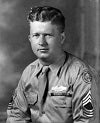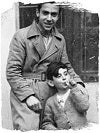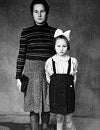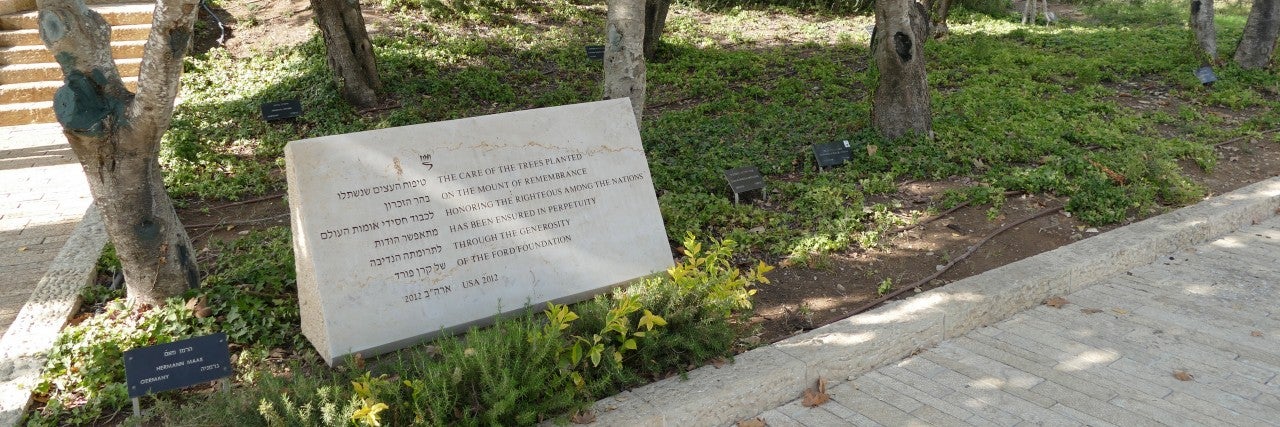January 24, 2020
On International Holocaust Remembrance Day, we remember the loss of 6 million Jews. But we also recognize and pay tribute to the more than 27,000 non-Jews who risked their lives to save Jews from the Nazis and their collaborators. Named Righteous Among the Nations by Yad Vashem, The World Holocaust Remembrance Center and Israel’s Holocaust authority, these brave individuals hailed from more than 50 countries and saved countless lives.
More than 6,992 individuals came from Poland; 5,778 were Dutch; and 4,099 came from France. But numbers only tell part of the story. It only took one woman from Ireland to save hundreds of children. And in Albania, Muslim villagers sheltered so many Jews that more lived in Albania after World War II than beforehand. Here are five extraordinary examples of moral courage.
Master Sergeant Roddie Edmonds, U.S.
U.S. Army Master Sgt. Roddie Edmonds of Knoxville, TN, was part of the 422nd Infantry Regiment that surrendered to the Germans in the Battle of the Bulge. But he never abandoned the Jews in his unit.

the Jewish
Foundation for
the Righteous
After their surrender, the soldiers were marched some fifty kilometers to Gerolstein, Germany where they were crammed into box cars and traveled seven days to a POW camp. After several weeks at a camp in Bad Orb, Germany the prisoners were divided up and about 1,000 non-commissioned officers were shipped to another prison in Ziegenhain. There, the Nazi commandant ordered all Jewish POWs to identify themselves.
Edmonds, the highest-ranking NCO, ordered all of his men to answer the call. When the German captor insisted that the Jews step out, Edmonds replied: “We are all Jews.” With a gun held to his head, Edmonds informed the commandant that according to the Geneva Convention, soldiers only had to give their name, rank, and serial number. "If you shoot me, you will have to shoot all of us, and after the war you will be tried for war crimes," Edmonds said, according to The Times of Israel.
The commandant lowered his gun and walked away and all of the soldiers survived, including the 200 Jewish GIs in the unit.
Edmonds died in 1985. On February 10, 2015, he became the fifth American and the first American soldier recognized by Yad Vashem as Righteous Among the Nations. The Jewish Foundation for the Righteous made a documentary about Edmonds, titled Footsteps of my Father, which has been featured at numerous film festivals.
Jeanne Daman Scaglione, Belgium
Belgian Catholic Jeanne Daman had never met a Jew before she was asked to help set up a kindergarten for children no longer allowed to mix with non-Jewish students. She eventually helped rescue 2,000 children from the Nazis and later worked to reconnect them with their families.
First as a teacher and then as head mistress of “Nos Petits” in Brussels, Daman witnessed the mass arrest and deportation of Jews that rendered some children instant orphans while they attended school. Anticipating the worst, some mothers asked the school to help. Soon the school closed, and Daman secretly began to whisk the children into hiding.
As reports of what was happening in Auschwitz and other camps spread, Daman also found work for Jewish women as maids in Belgian households, giving them false identity papers and ration cards, and keeping them up-to-date about where their children were hiding. She eventually adopted a new identity as a social worker for a German welfare agency, and helped the underground by delivering weapons and intelligence, according to the U.S. Holocaust Memorial Museum, which houses a collection of her papers.
After the war, she helped reconnect Jewish orphans with their families and care for children who had survived concentration camps. She eventually moved to the U.S. and helped with fundraising for Israel through the United Jewish Appeal.
On February 2, 1971, Yad Vashem honored Jeanne Daman-Scaglione as Righteous Among the Nations. On October 12, 1980 she received the ‘Entr’aide’ medal from the Belgian Jewish Committee 1940-45, under the patronage of the King of Belgium.
Refik Veseli, Albania
Refik Veseli worked as a teenage apprentice in a photography studio in Tirana, Albania when the Nazis occupied the Muslim-majority country in September 1943. A photographer at the studio Mosa Mandil, and his family, had already fled the Germans once when they invaded Yugoslavia two years earlier.

the Jewish
Foundation for
the Righteous
Young Refik asked his parents to hide the family in their small home in the mountain village of Kruja, according to the Jewish Foundation for the Righteous. They escaped through the mountains at night on mules, seeking cover in caves.
While Mosa and his wife hid in the Veselis’ barn, 7-year-old Gavra Mandil and his 5-year-old sister, Irena blended in with the other Muslim village children. Refik's brother, Xhemal, soon brought another Jewish family from Tirana – Ruzhica and Yosef Ben Yosef, and Yosef's sister Finica. Despite bombings and Nazi raids, the two families stayed with the Veselis in their mountain village until liberation in November 1944.
After the war, the Mandils returned to Novi Sad, Yugoslavia and in 1946 reopened their photography studio. Refik joined them to complete his training and lived with them until they emigrated to Israel.
On December 23, 1987, Yad Vashem recognized Vesel and Fatima Veseli and their son, Refik , as Righteous Among the Nations – the first Albanians to be recognized as Righteous by the state of Israel. On May 23, 2004, Yad Vashem recognized Hamid and Xhemal Veseli.
According to Yad Vashem, the will to help Jews in Albania was rooted in Besa, a code of honor inspired by the Muslim faith as interpreted by the Albanians. In fact, there were more Jews in Albania after the war than before it.
Refik Veseli ran his own photography studio in Tirana and later became the head photographer at the city museum, according to Haaretz. His son Fatmir carried on the family business. His grandson is named Ron after Mosa Mandil’s grandson.
Mary Elmes, Ireland
Born in Cork, Ireland, Mary Elmes led the Quaker delegation that provided humanitarian aid at an internment camp in the Pyrenees region of France. In partnership with a Jewish rescue organization, she helped establish homes for children to provide respite from the camp conditions.
When she learned that Jewish refugees would soon be deported, she hid six children in the trunk of her car, delivered them to safe houses and went back for more. She is credited with helping to save the lives of more than 420 children. She was arrested in 1943 because of her resistance to the German occupiers and the Vichy government, but released six months later.
On January 23, 2013 Elmes became the first Irish citizen recognized by Yad Vashem as Righteous Among the Nations. Some of the children she saved attended the dedication of a bridge in her hometown in 2019.
“I owe her everything,” Charlotte Berger-Greneche told the Irish Examiner. “We had a life because of her.”
“I hope that now people will realize what she did,” she added, “and be careful that such things she had to face don’t rise up again.”
The Podgorska Sisters, Poland
The Podgorska Sisters, Stefania and Helena, became heroes when they were just children.

the Jewish
Foundation for
the Righteous
According to the Jewish Foundation for the Righteous, after their father died and their mother and brother were sent to German labor camps, Stefania, 16, who had worked for the Diamant family in the city of Przemysl, began smuggling food into the Jewish ghetto where sons of her former employer were interned during the Nazi occupation.
After working out a plan with the Diamant brothers, Stefania and Helena, then 10, moved to a bigger residence. During the liquidation of the Przemysl ghetto in September 1943, the brothers showed up at the girls’ home with 11 other Jews. The 13 fugitives hid in the attic for two years. Stefania’s salary from her factory job provided food. When that wasn’t enough, Stefania helped the women in hiding knit sweaters to sell.
On January 11, 1979, Yad Vashem recognized Stefania Burzmińska-Podgórska and her sister, Helena Podgórska, as Righteous Among the Nations. Of the more than 20,000 non-Jews honored by the state of Israel for risking their lives during the Holocaust to save Jews from the Nazis, more than 6,000 came from Poland.
“I remember our parents said we are all people. We have one God for all people,” Stefania Podgorska told the USC Shoah Foundation in an interview in 1995. “So for me, they’re all people. I knew I risked my life and my little sister and I knew I can be killed anytime if somehow the gestapo can discover us but I wanted to help and I asked God to help me that I can help all these people. And God helped me and all 13 people are still alive.”
After the war, Stefania married Max Diamant (who changed his name to Josef Burzmińska). According to the Los Angeles Times, the couple immigrated to Israel, where he opened a dental practice in Tel Aviv. Helena became a radiologist in Poland. In 1961, the couple moved to the U.S. and had two children.
“She put her life in jeopardy to save my life. That was a good test,” Burzminska told the LA Times. “She’s not only a good wife, she’s a friend.”


